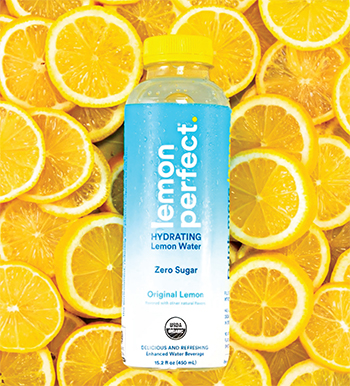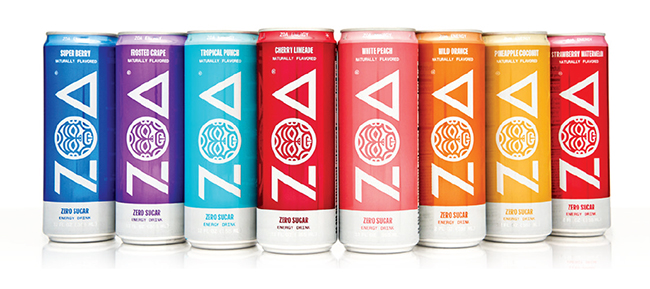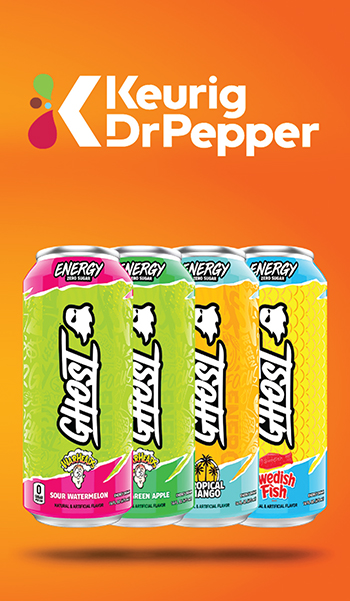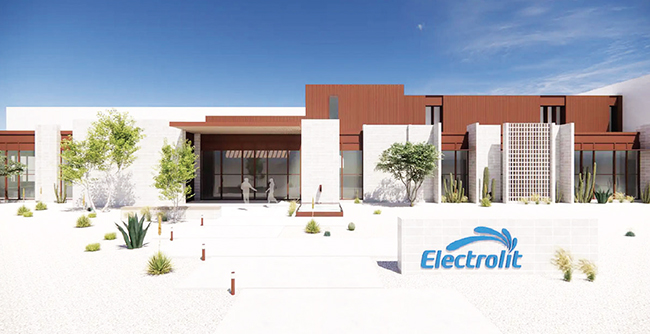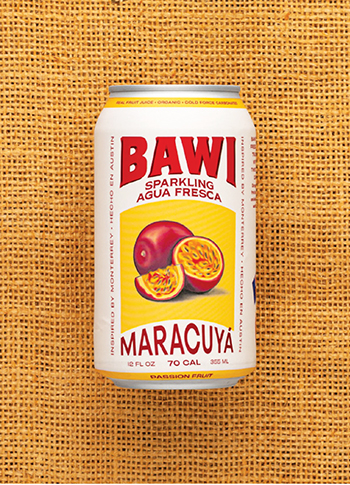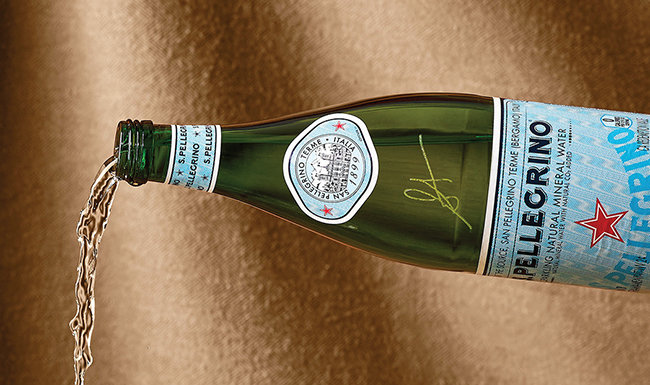Bevscape: The Latest Beverage Brand News
Lemon Perfect: New CEO Says Scaling Top Priority as Brand Looks to ‘Go Anywhere’
In September 2024, Lemon Perfect named former Mast-Jägermeister US head Jeff Popkin as its CEO, marking the first chief executive move at the enhanced water startup since it was founded in 2017. Speaking to BevNET in October, Popkin says his priority is to scale a brand he believes has the ability to “go anywhere” from c-stores to golf shops.
Popkin assumed the role from founder Yanni Hufnagel, who has since stepped into the position of executive chairman and will continue to “be the face of the brand” and “push the innovation engine,” Popkin told BevNET in a phone call.
According to Popkin, who’s past experience includes executive roles at Vita Coco and Red Bull Distribution Company, he was brought into Lemon Perfect to scale operations and help “divide and conquer” as the brand aims to firmly establish itself as an omnichannel competitor.
“I’d been watching Lemon Perfect because it’s a brand that’s doubled its business the last three years in a row, and those things tend to get noticed,” Popkin said.
He added that it was Hufnagel’s decision to step aside as the top day-to-day decision maker, opting to bring in a seasoned “operator” who could guide the brand as it works to build out its DSD network and make headway in small format channels like convenience and gas.
Data firm Circana reported dollar sales of Lemon Perfect’s flavored waters in U.S. retail, MULO plus convenience, grew 4.4% in the 52-week period ending July 14, 2024 to over $32.6 million. However, that statistic may not reflect all of the company’s product lines or channels, such as foodservice.
Much of Lemon Perfect’s retail presence to date has been in conventional and mass accounts, with only some select convenience channel presence, Popkin said, meaning there’s significant white space to grow in “cold channel” grab-and-go accounts.
He also views foodservice and on-premise (FSOP) as another key target, with office accounts and restaurants being a sizable opportunity for the brand. But there’s also an opening for the brand to make headway in alternative accounts as well, Popkin suggested, believing that Lemon Perfect’s simple branding focused on hydration and refreshment gives it a rare ability to “go anywhere.”
“Whether it’s a venue, whether it’s at a barber shop, whether it’s in any restaurant that you go into,” he said. “I was in, over the weekend, a TravisMathew shop – a golf shop – and I was talking to him thinking ‘Man, you could serve some Lemon Perfect in here.’ Every single place you go, Lemon Perfect could be there.”
As the business grows, Popkin said he expects to be “staffing up” its field and insights teams as Lemon Perfect’s DSD network expands.
Besides Popkin the Atlanta-based brand also saw several other key executive moves this fall. At the beginning of October, president, chief revenue member and board member Jim Brennan announced that he was retiring from full time responsibilities with Lemon Perfect, but would continue to work in the beverage industry in board and advisory roles. As well, the company recently announced Gui Weaver as its new chief sales officer, bringing 15 years of experience at Monster Energy with him to the role.
Looking ahead, innovation will be another pillar in growing the brand and drawing in new consumers. Although Popkin didn’t share any specifics on future products, he said the company will “follow the data” and is focusing on appealing to Gen Z and is weighing an array of R&D options including new flavors, line extensions and “occasion-based” products.
He also noted that Lemon Perfect makes a canned version of its drinks for foodservice already, which could potentially be extended into other channels as well as a sustainable alternative to its standard PET packaging.
The company previously updated its packaging, moving to a larger 15.2 oz. bottle from its previous 12 oz. pack, and reformulated the drinks to remove erythritol. It also debuted new flavors at the beginning of 2024, including Blueberry Coconut and Watermelon.
“As you scale, innovation is one of the key drivers,” Popkin said. “Because the consumer today needs to be somewhat entertained and needs to be blown away by what you put in front of them as an extension of the brand.”
Molson Coors Takes Majority Stake in ZOA Energy
Molson Coors in November acquired a majority stake in energy drink brand ZOA in a $53 million cash transaction, expanding its growing non-alcoholic beyond beer portfolio and adding to rising M&A interest across the energy space.
The deal, announced during Molson Coors’ Q3 earnings call, closed in October. The transaction will be recorded as a business combination.
“We believe ZOA is well-positioned, particularly as it plays in the better-for-you segment that is outpacing energy category growth,” said Gavin Hattersley, CEO of Molson Coors, speaking on a conference call. “With the support of its co-founder, Dwayne ‘The Rock’ Johnson, we have built a strong foundation for ZOA over the past three years, and it’s time to pursue the next stage of growth and scale. Taking this increased stake allows us to lead the entirety of the brand’s marketing, retail and direct-to-consumer sales development as we drive brand awareness and distribution, leveraging the strength of our network.”
At its launch in 2021, ZOA was expected to drive Molson Coors’ “Beyond Beer” ambitions outside alcoholic drinks. Leveraging the massive reach of actor/entrepreneur Dwayne “The Rock” Johnson – a co-founder alongside his business partner Dany Garcia, fitness coach Dave Rienzi and Juggernaut Capital Partners managing partner John Shulman – ZOA quickly established a presence in the highly competitive energy category, stating its intentions with a splashy Super Bowl ad. The energy brand’s retail business has been serviced by incubator L.A. Libations, in which Molson Coors also owns a minority stake.
ZOA’s introduction came just a few months after Molson Coors signed a 10-year distribution agreement with another major non-alcoholic beverage marker, La Colombe Coffee.
Yet after passing $100 million in sales in its first year, ZOA has since contracted; sales declined 6.1% to around $61 million (Total US – Multi-Outlet+ with convenience) in the 52 weeks ending Sept. 6, according to data from Circana. Over the years the core line has been rebranded and reformulated to up the caffeine and cut sugar (along with a move from 16 oz. to 12 oz. cans), and a second pre-workout line of RTDs and powders, called ZOA+, arrived in 2022. Still, Molson upped its initial stake in the brand last year and is deploying Johnson in a major ad campaign unveiled in February.
Molson Coors and La Colombe agreed to end their contract last March; the coffee brand has since aligned with Keurig Dr Pepper.
During Molson Coors’ distributor summit in September, the company said its goal is to sample 1 million cans of ZOA in 2025. The company also announced a “strategic partnership” with Naked Life, an Australia-based, non-alcoholic ready-to-drink cocktail line as part of its premiumization strategy.
Keurig Dr Pepper To Acquire GHOST, Expanding Energy Business
Keurig Dr Pepper agreed terms in late October to acquire energy drink and sports nutrition business GHOST, bringing one of the category’s fastest growing brands into its expanding energy portfolio.
KDP is paying $990 million for an initial 60% stake in GHOST – representing supplement arm GHOST Lifestyle and its drink business, GHOST Beverages – with the remaining 40% to be acquired in 2028. The deal is expected to close in late 2024 or early 2025.
“GHOST is a differentiated brand with significant growth potential, and we are excited to partner with its founders to take the business to the next level,” said KDP CEO Tim Cofer in a press release. “This acquisition strengthens our position in the attractive energy drink category, accelerating our portfolio evolution toward consumer-preferred, growth-accretive spaces through a disciplined deal structure.”
“The energy category is poised for continued long-term growth, which KDP expects to increasingly capture through our platform-based approach,” he added. “KDP’s portfolio of complementary energy brands is aligned against distinctive consumer need states, and, together, these offerings will unlock significant growth and scale benefits across our entire DSD portfolio.”
Co-founders Dan Lourenco and Ryan Hughes are staying on with GHOST and will operate as part of KDP’s U.S. Refreshment Beverages segment.
“We could not be more excited to build the future of GHOST together with KDP. As we thought about our company’s next chapter, KDP’s track record of cultivating disruptive brands, similar challenger mindset, and shared vision for the energy category and beyond made it the right home for our brand and team,” said Lourenco. “We are excited to pair KDP’s insights and capabilities with our products and people and know that together we will continue to scale and build GHOST towards our vision of a 100 year brand.”
While GHOST’s acquisition wasn’t a total surprise to industry watchers, Keurig Dr Pepper as the buyer was. For starters, KDP’s acquisition means the end of GHOST’s relationship with Anheuser-Busch, a minority investor and the brand’s energy drink distribution partner since 2018. According to the release, KDP plans to invest “up to $250 million” in buyouts to transition GHOST on to its own network of trucks. That means – once again – beer distributors nationwide will have a gap to fill in their portfolios, creating potential opportunities for another set of young brands to take advantage.
It’s unclear what this means for Nutrabolt, makers of C4 Energy, one of GHOST’s closest competitors amongst a cohort of surging next-gen energy brands. KDP made headlines by taking a minority stake in Nutrabolt (30% for around $868 million) and bringing C4 on to its trucks in 2022. On the strength of agreements with popular IP licensed from Hershey’s and other candy brands, C4 has emerged as the fourth best-selling brand in the category behind Red Bull, Monster and Celsius: in the 52 weeks through Sept. 6, the brand has grown 44.5% (around $738 million in sales) in total U.S. MULO plus convenience, according to NielsenIQ. KDP’s ability to keep the brand growing through its network should give confidence that it can do the same with GHOST, which generated around $632 million in sales during the same period.
Jefferies analyst Kaumil Gajrawala pegged the transaction at about three times Ghost’s 2024 sales. The acquisition and other distribution agreements would give the soft drink giant about 6% share of the overall energy drink market.
That’s not all, either: GHOST’s acquisition also comes ahead of another energy drink debut – this one from Black Rifle Coffee Company, as previewed at the NACS trade show this fall – which will be going on KDP trucks starting in January 2025. Those arrive as another energy play, A Shoc, is being phased out.
Electrolit Taking Production to Texas in 2026
Electrolit is laying down roots in the U.S., as the Mexican hydration company announced in November plans to bring production north of the border for the first time via a $400 million manufacturing facility in Waco, Texas, set to open in early 2026.
The “state-of-the-art” 600,000 sq. ft. site, housed in Waco’s largest industrial park, is designed to help Electrolit’s parent company PiSA USA meet soaring demand for its products, which have been distributed by Keurig Dr Pepper (KDP) since last October. Total U.S. sales (MULO with c-stores) surpassed $505 million through Sept. 6, a 24.6% increase year-over-year, per Circana. Electrolit currently holds a 4.35% dollar share of the aseptic sports drink category, behind PepsiCo (Gatorade), Coca-Cola (Powerade/BodyArmor) and PRIME (Congo Brands).
The new plant’s capacity is unknown, but the company described it as a “highly automated production and distribution facility” that will employ “over 200 skilled professionals and technicians” when it goes online. With an eye towards sustainability, it will have the capacity to incorporate non-virgin and recycled packaging materials, and will use rail infrastructure for outbound distribution to reduce its carbon footprint.
“We’re excited to announce our new U.S. manufacturing facility, marking a major milestone in our growth and commitment to quality,” said a statement credited to “The Electrolit Team.” “We are immensely grateful to all our U.S. consumers for their continued preference and support. Your trust and loyalty have been pivotal to our success. As we move forward, we remain dedicated to providing the best hydration solutions in the market and are confident that the years ahead will bring even greater innovations and improvements. Thank you for being a part of the Electrolit family.”
In addition to the current scarcity of aseptic beverage copackers, the move reflects Electrolit’s importance within KDP’s family of distributed brands: the company’s most recent earnings report cited the sports drink’s role in driving 4% volume growth within its U.S. Refreshments segment. The success of the brand’s science-backed rapid hydration formula has inspired competition from BodyArmor (Flash I.V.), Gatorade (Gatorlyte) and Monster (Revitalyte), just to name a few.
Bawi Closes $3.5M To Scale Operations
Austin, Texas-based agua fresca maker Bawi has secured a new tranche of growth capital as it looks towards expansion in 2025.
The $3.5 million seed round, announced in November, was led by Brand Foundry Ventures with additional funding from Rocanā Ventures, Amity Supply and TikTok president Blake Chandlee, among others.
“We launched in April 2022 and since then it’s been incredibly evident that the better-for-you, Hispanic beverage concept certainly has legs to stand on in mass market,” said Bawi co-founder and CEO Victor Guardiola. “A big chunk of this round is going to be used for operations, but also adding gasoline to our sales efforts.”
The new capital will fund Bawi’s impending launch in a “major natural channel retailer” in 2025, plus “a few upper-level management hires” that will pad out its sales team around the turn of the year, Guardiola said.
Bawi is currently working with about five DSDs across the U.S. but is primarily focused on building traction in California and Texas, where it’s courting “backyard” retailers like H-E-B.
Guardiola attributes the brand’s success so far on being a prime example of “cultural innovation.”
“Cultural innovation within the sparkling water or refrigerated juice category is quite literally bringing our Hispanicity into the mix,” he said.
Playing to that, Bawi recently launched its fourth flavor, La Guayaba, a pink guava variety that should be recognizable to anyone who has bought a styrofoam cup of agua fresca off a street corner in Mexico.
Startups like Agua Bonita, Frescoes Naturales or Bawi have increasingly had to compete with strategics maneuvering in the aguas fresca category. As that opportunity has grown, emerging brands have leaned into authenticity to increase velocities within their communities and among new consumer markets less familiar with the drink.
Bawi lives in the “Goldilocks zone” that caters to consumers looking for an alternative to traditional carbonated soft drinks but also between full-calorie and zero-sugar sodas as well, Guardiola said.
“A lot of beverage conglomerates thought consumers are binary within their tastes and preferences,” Guardiola said. “From a macroeconomic beverage innovation perspective, they weren’t innovating in the spread whatsoever.”
Part of what drew Rocanā Ventures to invest in the brand was that the brand brought “innovation not only to the Hispanic audience but to younger audiences that are looking for more adventurous and bolder flavors,” said Rocanā co-founder and managing partner Gurdeep Prewal. “It is straddling both the agua frescas category and the sparkling water category.”
Rocana’s inclusion in the round aligns with other investments the firm has made in next-generation beverages like Olipop and Recess. The investment is part of Rocanā’s Third Fund, RVP3, launched last year.
Guardiola is not shy about discussing the challenging “funding ecosystem that is not built for minorities and women” and believes that Bawi’s seed round can be an example to entrepreneurs who can’t seek startup capital from friends and family.
Previously unnamed investors in Bawi include Athletic Brewing founders Bill Shufelt and John Walker; Redbud Brands founder and managing partner Brian Goldberg; Manish Patel, former president of Nutrabolt Life Sciences; Michael Rypka, the founder of Torchy’s Tacos; and former PepsiCo CFO Bob Monza.
Guardiola has been formalizing his role as a mentor for minority and female entrepreneurs to serve a similar role that was provided to him by members of the Siete Foods’ Veronica Garza and the Athletic Brewing team in his early days launching Bawi. He sees mentorship as integral for leveling the playing field in CPG.
“The CPG industry, especially for cultural brands, is pretty difficult and can be a bit exploitative,” he said. “I don’t think a lot of people in the CPG industry want to talk about that.”
Nestlé Moves Bottled Water, Premium Bevs to Standalone Business
Nestlé is creating a new business to house its bottled water and premium beverage brands, as the Swiss conglomerate seeks to recalibrate its portfolio in the wake of anemic growth.
The new global standalone business – which includes brands like Perrier, Acqua Panna and San Pellegrino, among others – will be based in Paris and administered by Muriel Lienau, head of Nestlé Waters Europe. The change takes effect January 1.
The move represents Nestlé’s latest attempt to reorganize and revitalize its bottled water business. After a year-long divestiture, the company unloaded its North America water division for $4.3 billion in 2021 to private investors to form BlueTriton Brands, with the idea of focusing on its premium import labels. Those water brands generated around 3.6% of total company sales for Nestlé in 2023.
It also leaves the future of Nestlé’s stake in the water business in question. Under the new leadership of CEO Laurent Freixe, the Swiss company has promised to back its underperforming brands with increased marketing and ad spending; investment is pegged at 9% of sales by the end of next year.
Yet in a statement announcing the move, Nestlé indicated that “new management will evaluate the strategy for this business,” noting “this will include exploring partnership opportunities to enable Nestlé’s iconic brands and growth platforms to achieve their full potential.”
The move is part of a larger effort by Freixe’s administration to arrest Nestlé’s slipping market share, which has been battered by high supply costs for ingredients like cocoa and coffee, as well as price hikes. In November, the company lowered its profitability projections for the full-year, while vowing to deliver more than $2.8 billion in additional cost savings by the end of 2027. Organic sales growth is projected to be around 2% for 2024.
“Our action plan will also improve the way we operate, making us more efficient, responsive and agile,” said Freixe in a statement. “This will allow us to deliver value for all our stakeholders. I am confident that we can deliver superior, sustainable and profitable growth and gain market share, while transforming Nestlé for long-term success.”


Receive your free magazine!
Join thousands of other food and beverage professionals who utilize BevNET Magazine to stay up-to-date on current trends and news within the food and beverage world.
Receive your free copy of the magazine 6x per year in digital or print and utilize insights on consumer behavior, brand growth, category volume, and trend forecasting.
Subscribe